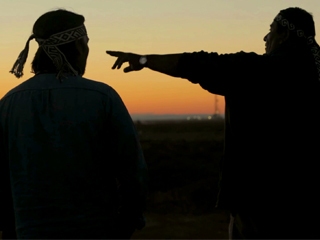Fracking Eden
 The shale reserves of southern Argentina have the potential to make the country oil and gas-independent. But while Shell have trebled their investment in the area, it is the local people who must pay the price.
The shale reserves of southern Argentina have the potential to make the country oil and gas-independent. But while Shell have trebled their investment in the area, it is the local people who must pay the price.
"They promised to check the water quality every month", explains Maria Flores, "but they did this only once or twice. Now they haven't been for a year, so we don't know if it's safe enough to drink." The Flores family farm lies between several of Shell's exploratory drilling wells. They rely on their cattle for their livelihood, but with chemicals and waste now contaminating the water-table, grazing pastures have become hazardous. "This is how Shell works", she says resignedly. "The affected area is enormous." Stretching from the slums of the provincial capital, Neuquen, to the protected nature reserves of Auca Mahuida, this area bears the scars of rapid infrastructural development, with new roads slicing through the landscape to link up fracking sites. For big companies like Shell, this is an exciting new frontier. But for the Flores family and the inhabitants of rural Patagonia, it's simply their home.
FULL SYNOPSIS

